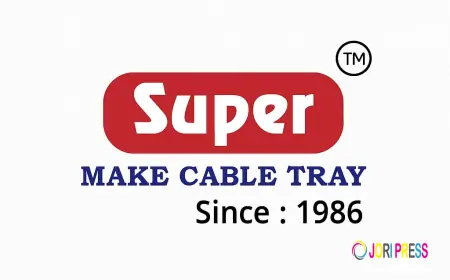Sales Words: The Secret Weapon to Persuasion and Closing More Deals
The right sales words can spark curiosity, build trust, and motivate prospects to take action. On the other hand, the wrong choice of words can create doubt, resistance, or even drive potential customers away.

When it comes to selling, words are your most powerful tool. The right sales words can spark curiosity, build trust, and motivate prospects to take action. On the other hand, the wrong choice of words can create doubt, resistance, or even drive potential customers away. That’s why top-performing salespeople don’t just rely on what they sell—they master how they say it.
In this blog, we’ll explore why sales words matter, examples of persuasive words and phrases you can use, and tips to incorporate them naturally into your sales conversations, emails, and pitches.
Why Sales Words Matter
Sales is more than facts and figures; it’s about emotions, trust, and connection. Research shows that buyers make decisions based on emotions first and then justify them with logic. Words are the bridge that connect your product’s value with your buyer’s emotions.
The right sales words can:
-
Trigger emotional responses such as excitement, urgency, or relief.
-
Position your offer as trustworthy, credible, and beneficial.
-
Guide prospects smoothly through the decision-making process.
-
Differentiate your product from competitors with subtle but powerful phrasing.
Think of sales words as keys—each one opens a different door in your buyer’s mind.
Categories of Powerful Sales Words
Not all sales words serve the same purpose. Depending on your sales goal—whether it’s sparking curiosity, building trust, or creating urgency—you’ll want to lean on different types of words.
1. Trust-Building Words
Trust is the foundation of any successful sale. Words that emphasize transparency and credibility make prospects feel safe. Examples include:
-
Guaranteed
-
Proven
-
Safe
-
Backed by
-
Trusted
-
Authentic
Using these in your pitch assures prospects they won’t regret their decision. For instance: “Our solution is a proven method trusted by 1,000+ businesses.”
2. Urgency and Scarcity Words
Sometimes prospects hesitate because they feel they have all the time in the world to decide. Words that create urgency can nudge them to act quickly:
-
Limited
-
Now
-
Exclusive
-
Deadline
-
Only a few left
-
Act fast
For example: “This exclusive offer is available only until Friday.”
3. Value-Driven Words
Prospects want to feel they’re getting more than what they pay for. Words that highlight value and benefits resonate strongly:
-
Save
-
Results
-
Benefit
-
Reward
-
Transform
-
Return on investment (ROI)
Example: “You’ll save hours each week while transforming how your team collaborates.”
4. Emotional Impact Words
Emotions drive decisions. Words that appeal to feelings help you connect at a deeper level:
-
Imagine
-
Love
-
Success
-
Freedom
-
Stress-free
-
Relief
Example: “Imagine the relief of knowing your data is completely secure.”
5. Action-Oriented Words
Clear calls to action help buyers understand the next step. Action words push them forward:
-
Get
-
Try
-
Discover
-
Start
-
Join
-
Claim
Example: “Join hundreds of professionals who already use this tool to scale their sales.”
Examples of Sales Phrases That Work
While single words are powerful, stringing them into natural phrases makes them even more effective. Here are some tested sales phrases you can adapt:
-
“This solution is proven to save time and increase productivity.”
-
“You can get started today at no risk with our guaranteed trial.”
-
“This is an exclusive offer available for a limited time.”
-
“Our clients love the freedom this platform provides to focus on what matters most.”
-
“Imagine how much easier your workday will be once this process is automated.”
Notice how these combine trust, urgency, value, and emotion.
Common Mistakes to Avoid with Sales Words
While sales words are effective, misusing them can backfire. Avoid these pitfalls:
-
Overusing Buzzwords – If every other word is “exclusive” or “guaranteed,” it sounds fake. Moderation is key.
-
Making Unrealistic Claims – Phrases like “double your sales overnight” feel scammy. Stick to what you can back up.
-
Ignoring the Buyer’s Language – Sales words must align with your buyer’s needs. What resonates with a tech startup might not work for an enterprise bank.
-
Being Too Pushy – Urgency words work, but if you sound aggressive, you risk losing trust. Balance urgency with empathy.
How to Incorporate Sales Words Naturally
Here are practical tips to weave sales words into your communication without sounding robotic or scripted:
-
In Cold Calls: Use trust and value words early to establish credibility. Example: “We’ve helped companies like yours save 20% on costs with a proven system.”
-
In Emails: Sprinkle urgency and benefit-driven words in subject lines. Example: “Exclusive Offer: Save 30% When You Act Today.”
-
In Presentations: Use emotional words to help prospects visualize outcomes. Example: “Imagine having the freedom to focus on strategy instead of manual tasks.”
-
In Closing Conversations: Use action-oriented words to guide the next step. Example: “Let’s get you started with a trial today.”
The goal is to make sales words feel like a natural part of the conversation, not forced jargon.
Final Thoughts
Sales is ultimately about connecting with people, and words are the bridge that make that connection possible. By mastering the right sales words, you can:
-
Build trust faster,
-
Create urgency without pressure,
-
Highlight value clearly, and
-
Inspire prospects to take action.
Remember, it’s not just what you sell—it’s how you say it. The most successful salespeople are those who know how to turn simple words into powerful persuasion tools.
So the next time you’re writing an email, pitching a client, or making a cold call, pay close attention to your word choice. A few well-placed sales words could be the difference between a “maybe later” and a “yes, let’s do this.”
What's Your Reaction?
 Like
0
Like
0
 Dislike
0
Dislike
0
 Love
0
Love
0
 Funny
0
Funny
0
 Angry
0
Angry
0
 Sad
0
Sad
0
 Wow
0
Wow
0
















































